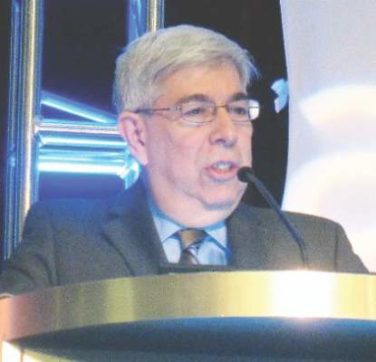FROM JAMA
No difference was seen in quality of care provided by board-certified internists subject to Maintenance of Certification and those who are grandfathered into the older, periodic certification system, although a small reduction was seen in the cost of health care by MOC physicians.
Bradley Gray, Ph.D., of the American Board of Internal Medicine in Philadelphia and his colleagues compared ambulatory care–sensitive hospitalizations (ACSHs) in Medicare patients treated by two groups of general internists – 956 who certified in 1991 (subject to MOC) who treated 84,215 patients and 974 general internists who certified in 1989 (grandfathered out of MOC) who treated 69,830 similar patients. Their research was published Dec. 10 in JAMA (2014;312:2348-57 [doi:10.1001/jama.2014.12716]).
Comparisons were made between treatments occurring between 1999 and 2000 before the 2001 MOC requirement and in 2002-2005.
The annual rate of ACSHs per 1,000 beneficiaries grew from pre- to postcertification periods for both groups of physicians – from 37.9 to 61.8 for MOC-required physicians and from 37.0 to 61.4 for grandfathered physicians. MOC was not statistically associated with a difference in the growth of the annual ACSH rate between the cohorts.
However, there was a difference in cost. For MOC-required physicians, annual per-beneficiary health care costs increased from $5,157 in during the precertification period to $7,633 in the postcertification period. For grandfathered physicians, costs increased from $5,133 to $7,793.
Dr. Gray suggested the 2.5% decrease in growth of costs could be from better utilization of laboratory tests, imaging, and specialty tests by MOC physicians.
“During the study period, MOC consisted of passing a secure examination and completing medical knowledge modules,” Dr. Gray said. “These components consisted of vignette-based multiple-choice questions that provided general internists with feedback on their performance and were generally designed to help them use resources appropriately, particularly imaging and other diagnostic tests.”
Test prep and completing medical knowledge modules “may have led to more efficient care by reducing the need for referrals and consultations or reducing the ordering of low-value tests,” he said.
While individual physicians may not see a noticeable change in costs, “these small individual savings may be large at the population level because there are nearly 50 million Medicare beneficiaries with over a half a trillion dollars in annual Medicare health care expenditures, exclusive of costs borne by beneficiaries. … Even if the true association with MOC is a small fraction of what we report, our estimates suggest savings likely far exceed the direct cost of administering the MOC program … as well as indirect costs borne by physicians,” he added.
In a separate study, Dr. John Hayes of the Clement J. Zablocki Veterans Affairs Medical Center in Milwaukee and his colleagues found no significant difference between MOC-required internists and grandfathered internists in 10 primary care measures in a population of 68,213 patients at four VA medical centers from 2012 to 2013 (JAMA 2014;312:2358-63 [ doi:10.1001/jama.2014.13992]).
“Our adjusted results showed no significant difference between holders of time-limited and time-unlimited certificates in the VA setting,” Dr. Hayes wrote. “To whatever extent a goal of MOC is to improve the quality of patient care, these findings raise questions of whether that goal is being achieved, at least among internists at these VA hospitals.”
Dr. Gray and several of his colleagues are employed by ABIM. One coauthor receives royalties related to assessment of clinical competence. Dr. Hayes and his colleagues disclosed no relevant conflicts of interest.




